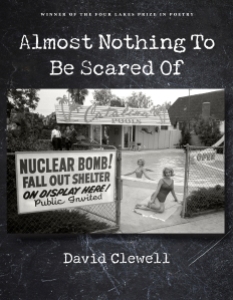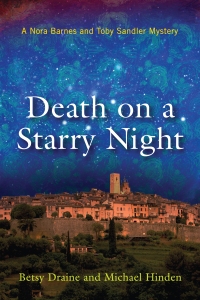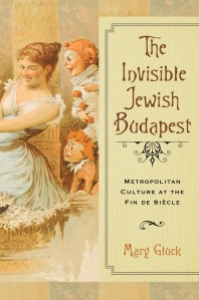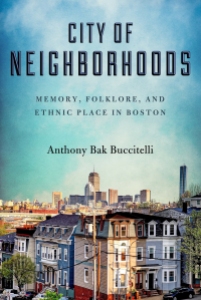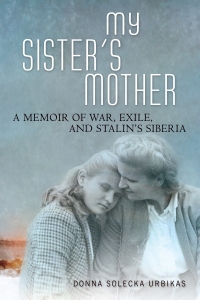
Paul A. Townend, author of The Road to Home Rule: Anti-imperialism and the Irish National Movement, provides some background on the turbulent political landscape in Ireland in the late 1800s. The University of Wisconsin Press is publishing this book today in the book series History of Ireland and Irish Diaspora.
The Road to Home Rule tracks the relationship of discontented Irish patriots with their place in the British imperial system. As “jingo” imperial policies drove the relentless and often violent imperial expansion of the British Empire of the 1870s and 1880s, Irish political entrepreneurs capitalized on a rising, visceral popular Irish rejection of that system. The story parallels in certain ways the striking current turn in Anglo-American political culture towards anti-globalist populism.
Then and now, an ambitious and rambunctious political minority worked tirelessly, successfully, and, in the minds of the political establishment, unscrupulously, to disturb what many saw as an inevitable progressive march away from the past. This past was bound by localism and resentful identity politics, and this minority sought to move towards a brighter, more prosperous, and mutually advantageous transnational and interconnected future. In Ireland in the 1870s, Anglo-Irish elites led by the lawyer Isaac Butt imagined a new Ireland, ruled by its own parliament but even more closely connected to the British Empire, the great globalizing force of the last quarter of the nineteenth century. By granting Ireland local autonomy in the form of “home rule,” Butt argued to anyone in England who would listen that Irish grievances could be settled quickly, and reconciled Irish energy and human capital could be harnessed to help build the rapidly expanding empire.
Identifying with Benjamin Disraeli’s efforts to lead a populist turn in British imperial culture, and to embrace the inspirational potential of imperial grandeur, Butt and others believed that, properly led, Irish soldiers, merchants, and emigrants could leverage their longstanding service to Empire into a genuine partnership for ordering the world’s less civilized peoples. The joint project of spreading Christianity, British law, and building a global economy dominated by British technology, capital markets, communications, and transport infrastructure—railroads, telegraphs, and steamships—would thus transcend generations of petty sectarian animosities and festering grievances. All of this would allow the intransigent “Irish problem” to fade into the history books, a curiosity of the past, overcome forever by the force of progress, prosperity, optimism, and mutual enterprise.
In Ireland, however, this vision was disturbed by unanticipated developments, and was then swallowed up by a wave of frustrated and angry Irish populism. The uncharacteristically unimaginative failure of Disraeli to seize the opportunity presented by Butt’s offer of collaborative partnership frustrated Butt and his Irish allies. Rising economic distress in Ireland occasioned by the disruption of global agricultural markets compounded popular discontent. The situation boiled over as Disraeli, and then his Liberal successor, William Ewart Gladstone, embarked between 1878 and 1885 on a spectacular series of bloody imperial campaigns against Afghans, Zulus, Boers, Egyptians, and Sudanese peoples unwilling to accept Pax Britannica and all its benefits, which they never asked for.
It took the political entrepreneurship of Charles Stewart Parnell, however, and a handful of cosmopolitan allies—many of them globetrotting journalists and foreign correspondents, like the Fenian J.J. O’Kelly or Parnell’s close associate, Cork native Justin McCarthy—to capitalize on the populist opportunity afforded by these wars and economic disruptions. Parnell caught the pulse of Irish disgust and rejected any embrace of British imperial ambition. He worked to marshal anti-imperial Irish public opinion, stirred as it was by imperial violence, appalled by the imposition of “Zulu-whipped” British soldiers on the Irish countryside, and quick to see parallels between Irish, African, and Indian experiences of British power. Parnell superseded Butt by forging a powerful bond with nationalist sentiment, building a transformative and enormously consequential new Home Rule movement that demanded greater independence and rejected Irish support for the imperial project. He and others used the press, especially the new technologies that encouraged the insertion of political cartoons, to promote a vision of empire building as an exercise in hypocritical brutality.

“Look on this, and on this,” July 1882; comparing the occupation of Alexandria with “Coercion” during the Irish Land War. Photo Credit: National Library, Ireland
By strengthening for many in Ireland the connection between opposition to Union and opposition to empire, Parnell made it nearly impossible for himself or his successors to reconcile Irish independence with imperial citizenship. They alienated forever many imperially minded Britons who rightly diagnosed the threat Parnellism posed to the emerging British-dominated global system. As Flora Dixie, the shrewd pioneering war correspondent and sympathetic critic of Parnell, noted at the time, her English friends were disgusted by the apparent unwillingness of a Home Rule Irish parliament led by Parnell to “agree to any imperial policy of the ministry.” “What would be the result,” she wondered, of this fundamental disconnect on foreign policy, “if not political anarchy?”
In embracing nationalism and rejecting the transnational progressivism of their day, these Irish nationalists acted more out of opportunism than ideology. The leaders of the Parnell movement were neither parochial nor anti-modern, but they did enormously frustrate a seemingly inevitable march of history towards a future that many believed would subordinate local economic interests, as well as cultural and political identities, to new power structures and forces of globalization. To achieve their political goals, Parnellite Home Rulers had to stoke public opinion, graphically caricature British power, and work to remind Irish people of their historical grievances. While they often encouraged sympathy and solidarity with other imperial subjects, their sometimes cynical embrace of contemporary racial attitudes also led them to encourage the Irish people to expect political success where less “civilized” peoples failed to resist British power. In their struggle against what they understood to be overwhelmingly powerful political and economic forces, they adopted an opportunistic and ethically fluid approach to building their movement into a transformative revolution.

“Prophet and Loss.”; Satirizing the occupation of Egypt. Photo Credit: National Library, Ireland
How Brexit might be better understood by contemplating the Irish anti-imperialist campaign is too presentist an undertaking for this historian. But, it is interesting to note how contemptuous Butt and his contemporaries were about Parnell’s efforts, even while they acknowledged the potent destructive political force of charismatically led populist campaigns rooted in economic frustration, fiercely held “local” identities, and resentment of distant and unresponsive elites. As Mitchell Henry, one appalled ally of Butt, put it in a public letter in 1879, the new leadership was “revolutionary and criminal” in its rebranding of Irish patriotism as the rejection of empire. “The object of the Home Rule movement,” he insisted, was “to present Great Britain and Ireland as one empire, united together.”
The lessons of history are often invoked; one of the most important is that it can be very difficult to judge the likely verdict of the future on the choices made in a given present. Parnell remains a national hero in Ireland; his political genius is acknowledged by many who are less sure of the long term consequences of the political movement he led. But to the majority of his politically astute contemporaries, the savvy Irish elites of his day, Parnell was a demagogue who enabled the short-sighted and opportunistic rejection of the best way forward for the Irish people into a better future and a brighter era of cooperation. Because he refused to let go of the past and move on from bitterness and grievance, the argument went, his trading in the emotionally effective but short-sighted currency of anti-imperialism left the Irish outside of the power structures that self-interest dictated they accept and adapt to.
 Paul A. Townend is a professor of British and Irish history at the University of North Carolina, Wilmington. He is the author of Father Mathew, Temperance, and Irish Identity and the coeditor of Ireland in an Imperial World.
Paul A. Townend is a professor of British and Irish history at the University of North Carolina, Wilmington. He is the author of Father Mathew, Temperance, and Irish Identity and the coeditor of Ireland in an Imperial World.
 November 14, 2017
November 14, 2017 November 28, 2017
November 28, 2017






 Paul A. Townend
Paul A. Townend






